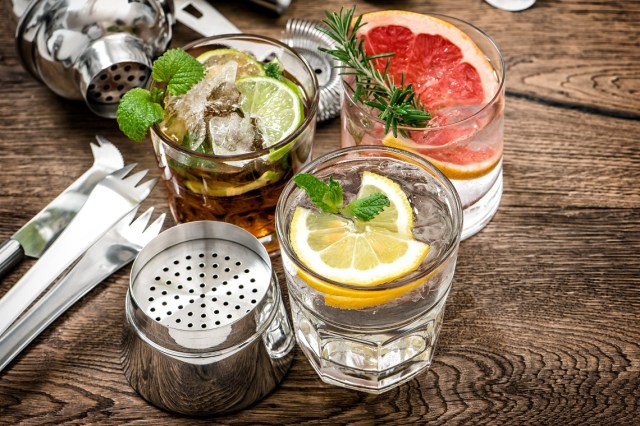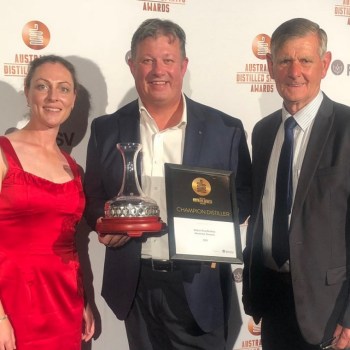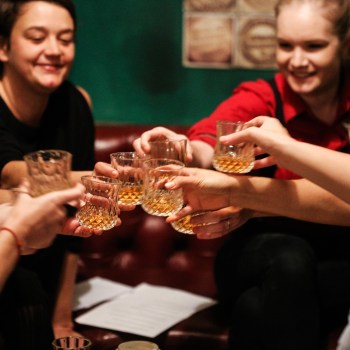We chat to Spirits & Cocktails Australia’s recently appointed CEO, Greg Holland, about challenges and opportunities for the industry in 2020.
Bars&Clubs: Greg, congratulations on your appointment. What’s exciting for you about it?
Greg Holland: This is a very exciting time to be involved in the spirits sector. The Australian distilling industry is currently at the stage the Australian wine sector was at 40 years ago and, with the right regulatory framework it’s poised to make a huge contribution to jobs, the rural supply chain, and tourism and also emerge as a key agricultural export product.
We’re also seeing people choosing to drink better quality alcohol rather than more volume, and with this transition there’s been a corresponding surge in premium drinking experiences in small bars and distilleries in metropolitan and regional areas across Australia. And, of course, the NSW Government’s repeal of the lockout laws will further contribute to the blossoming of Sydney’s night-time culture.
B&C: What needs to happen for the spirits industry to be assured of a sustainable future?
GH: Australian spirits drinkers pay some of the world’s highest taxes on their drinks. Australia’s tax is 65 per cent higher than New Zealand’s, it’s more than double that paid by consumers of packaged beer and it’s four times as much paid by cider drinkers. And this high level of tax is increased every six months.
In recent years, Australia’s local distilling sector has started to build a premium reputation, with Australian-made spirits taking out prestigious awards around the world – just a couple of months ago, Four Pillars was named International Gin Producer of the Year. There are now over 200 distilleries in Australia – predominantly small, family businesses. These businesses are passionate about what they do, committed to their communities and many of them are investing in much-needed tourism and hospitality infrastructure, creating local jobs and supporting Australia’s broader tourism offer. However, these distillers face a huge barrier.
We need urgent action to fix the unfair alcohol tax. We need a system that relieves the high tax paid by drinkers, stops the tax getting worse and attracts material investment into the industry. A failure to rectify the tax system to reflect this has long-term implications for revenue, growth, jobs, hospitality, tourism and basic fairness.
B&C: How can the industry work more collaboratively to deliver a positive message about consumption in Australia?
GH: Drinking trends across Australia are changing dramatically, and for the better. The most comprehensive independent data on Australian drinking trends – the National Drug Strategy Household Survey conducted by the Australian Institute of Health and Welfare has found that over the last 10 to 15 years, there have been significant declines in people drinking at risky levels. Most Australians are drinking less frequently on a daily and weekly basis, and more people are deciding not to drink at all. People are drinking better quality rather than higher volumes.
We do acknowledge, however, that there are issues arising from excessive alcohol consumption and under-age drinking that need to be addressed. Generally, industry people are happy to commit to solutions they believe will work but get very frustrated with proposals which restrict choice, increase costs but do nothing to address real problems. It’s very important that the practical views of people in the industry are heard by those who are trying to come up with solutions.
B&C: What will be the major challenges and opportunities for Spirits & Cocktails Australia in 2020?
GH: At Spirits & Cocktails Australia we’re excited at the opportunity to better educate all our stakeholders on the great opportunities that can be unlocked by sensible reform to our tax system and by the investment that will flow as confidence in the business environment grows. Spirits and cocktails are at the vanguard of the ‘drink better’ movement and we’ll continue to press the cause for sensible regulation at all levels of government.
B&C: What do you think will be the big spirits trends in 2020?
GH: In its report on alcohol consumption released in 2019, the Australian Bureau of Statistics’ figures showed that while the average daily consumption of alcohol remains unchanged from 2016-17, overall spirits consumption rose, while the consumption of other alcoholic drinks was either steady or falling. This data confirms other more recent market data that shows increasing consumer preference for spirits. I believe the trend towards premiumisation will continue both in the bottled and premixed segments as well as a continued interest in premium whisky and gins of all types.
This interview was originally conducted for National Liquor News’ 2020 Annual Industry Leaders Forum issue, out in February.



